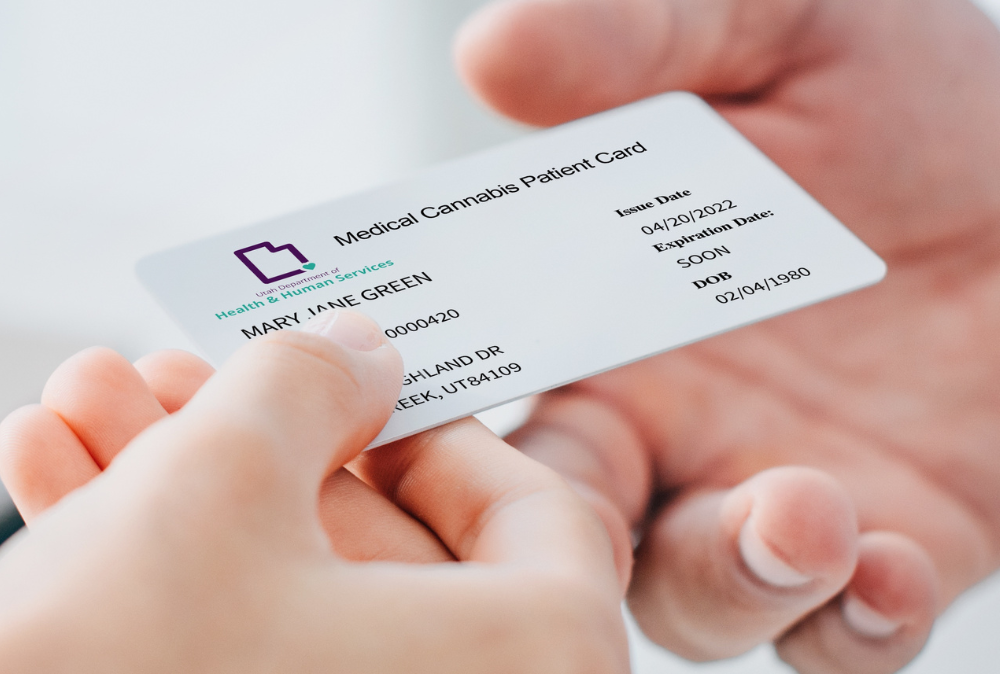
Happy five-year anniversary, Utah! Can you believe we have a Medical Cannabis program in this state at all? Or that we have had it for five years now? Let’s reminisce on the past five years of the Utah Medical Cannabis program and look ahead to the next five years.
While the Utah Medical Cannabis Program has grown substantially in the past five years, it still leaves much to be desired. Patients and others in the space still advocate for the right to grow cannabis, a clause many expected to initially be included in the law. Removal of this restriction would not only get rid of the cost barrier to safe access for many, but it would also allow for patients in incredibly rural areas outside of dispensary range to participate in the program as well.
Speaking of cost, it’s way too high (and not in a good way). Though it’s getting better, the average cost of cannabis in Utah is still quite a bit higher than surrounding states. According to a market analysis put out by the Utah Department of Health and Human Services, around 60% of Utah Medical Cannabis program patients get their cannabis from sources other than state-sanctioned pharmacies. This is a huge disservice to Utah patients, many of whom got their Medical Cannabis Cards to medicate legally are now turning to illegal activity again because they can’t afford dispensary prices. They are quite literally risking it for the (Gorilla) biscuit and putting their livelihoods in jeopardy and they deserve better. (However, if you factor in the cost of gas, the cost of product, and the cost of a potential drug charge if you are pulled over, it is not much cheaper.)
Finally, to further emphasize the medical aspect of this program, we need to improve product availability and continuity. If we’re using cannabis as a medicine (and we are, of course, in the Utah Medical Cannabis program), we need to treat it like a medicine in every way. Far too often, Utah cannabis patients search far and wide for a product that works for their condition only to have that product be pulled from the market shortly after it arrived. That may work in a recreational market, but medical patients need continuity. If Blue Dream gummies help the 74-year-old pain patient sleep for the first time in years, imagine their disappointment when it’s out of stock for months. They’re either back to the drawing board to find a new strain, or potentially to find a new treatment entirely. It’s not fair and frankly, it’s not medicine.
So here we are. Five years into the Utah Medical Cannabis Program and while we’ve come a long way, we’ve still got some growing to do. We here at UtahMarijuana.org hope to see expansion in access and availability sooner rather than later. If you’re interested in getting a Medical Cannabis Card, come visit us at our affiliated clinic, KindlyMD. For more information about the Utah Medical Cannabis program, visit the Utah Department of Health and Human Services program website.

About five years into the Utah Medical Cannabis program, we’re no strangers to the cannabis card pop-up clinic. “$50 Med Cards, Today Only!” “Get Your Med Card for $25!” “Walk-In Med Cards for Just $75!” They’re everywhere. QMPs stuffed into back rooms at smoke shops and dispensaries, patients lined up waiting for their chance to share their health story, only to have to share it with zero privacy to a provider who is just trying to get you out the door and on to the next card. Don’t get us wrong, the low price is incredibly enticing. But like they say, you get what you pay for. And with such a mature program, why are we still doing things like it’s the wild, wild west? Get-Legal-Quick Events are delegitimizing cannabis as a medicine, plain and simple. Can you imagine any other medicine prescribed to you in such a way? Or any other doctors visit with such a disregard for patient privacy? What’s more, when your card expires, good luck finding that provider again. Just like any other medical treatment, Medical Cannabis care requires continuity, education, and care for best results.
Let’s start from the very beginning. You see an ad online or hear about a pop-up clinic from a friend, sign up for an appointment, and arrive, only to see a line out the door to the local dispensary. You’re in the right place, but maybe they’re just behind. You settle in next to another patient and ask how long they’ve been waiting. “Over an hour and according to the front desk, I’m not even next.” Yikes. After a loooooong while, they call your name. You’re guided back to a corner of a small, crowded room blocked off by curtains to meet your QMP. They seem distracted, but you’ll give them the benefit of the doubt. It’s probably been a busy day. After three minutes and a handful of questions, you’re being rushed out to the lobby of the dispensary again and told you’re legal. You’re then immediately met with someone who tells you that you get a huge discount at the dispensary if you buy today.
If dispensary involvement in these events makes them feel icky to you, you’re not alone. They’re the ones hosting the event, scheduling appointments, and most importantly, they’re the ones walking you to the check-out counter at the end of your visit with promises of fleeting discounts and deals you must act now on. It has to make a cannabis patient wonder: am I a patient looking for relief or am I a dollar sign and a purchase? All that aside, in Utah anyway, QMPs issuing cards with space and advertising provided by the dispensaries is technically against the law. The whole thing is comparable to early drug company kickbacks that spurred the opioid crisis! (Keep an eye out for changes and clarification for this restriction later this year, as it’s a topic of some proposed bills in this year’s legislative session.)
And let’s say that you’re pretty confident in your cannabis use and willing to put up with all the chaos for a cheap card and discounted product. Who can blame you! You’re just trying to get legal. So, after a quick chat with a QMP in a back room at your local pop-up clinic, you buy yourself some flower and take it home. It’s been years since you’ve had THC in your system, but you used to use pretty regularly in college. You fire up your new dry herb vaporizer (because Utah has that no flame law, remember?) and pack in some flower. You turn the heat up all the way and after a few long, deep inhalations, the flavor is tasting a little burnt so you know you’ve vaped the whole thing. A few minutes later, you’re not feeling chill and relaxed like you had intended. Why?
A few things went wrong here. First, always use caution when using cannabis for the first time, or for the first time in forever. Start with low doses and go slow to make sure you do not take more than you need and end up feeling uncomfortable. Take small, mindful sips (no more than a few seconds), leaving space between each for a check-in with yourself to see how you are feeling. Remember, you can always take more, but you can’t take less! Finally, a UtahMarijuana.org tip: we recommend starting your dry-herb vaporizer on low for the first few hits of your session, gradually turning up the heat as you go. This helps you to unlock the full potential of your medicine, activating all the compounds and terpenes along the way. When you heat your flower to the max right away, you’re likely burning off some of the good stuff!
For many patients who received their Medical Cards at one of these pop-up clinic events, the above situation is all too common. The Medical Cannabis on the market today is quite literally not your grandma’s weed — It’s stronger, more potent, and much more complex. That’s why it’s crucial to meet with a QMP who’s not only qualified to recommend cannabis, but who’s also very well informed on the subject and takes the time answer your questions. This education is necessary for a positive outcome with plant-based treatment and rarely found at your local pop-up clinic.
Perhaps the most common problem Utah Medical Cannabis patients are facing after getting their cards at a pop-up clinic is a lack of continuity of care. Even experienced cannabis users want to check in with their providers to discuss new dosing and delivery methods as their healthcare needs change, but it’s hard to get a hold of the stranger from those 3 minutes behind the curtain. In some cases, patients can’t find the QMP that gave them their card at all. When their cards expire, patients find themselves left scrambling to get it renewed. An employee at a local cannabis clinic recounted a story to us of a patient she once helped with this scenario. The patient had paid for her card via Venmo and couldn’t find her QMP now that her card had expired. The employee ended up having to help the patient find the charge in her Venmo account and cross-reference the provider’s account handle with the state website QMP list to find the provider’s contact information. The employee mentioned that she still was not sure if that patient found her QMP or if she needed to start over completely.
This is a huge problem. Medical Cannabis is a tool we are using medicinally and needs to be treated as such: medicine. Continuity of care is crucial for long-term success with cannabis treatment, just as it is with any other treatment.
So, before you’re sucked in by the appeal of low prices, consider establishing care with an actual cannabis clinic to get your Medical Card. Chances are, the providers there are educated on cannabis medicine, have answers to all your questions, and are looking forward to helping you feel better long-term, not just right now. The providers at our affiliate clinic, KindlyMD, sure are. And while pop-up clinic events may boast “the cheapest” cards, KindlyMD is one of the only cannabis clinics to also take medical insurance and treat other conditions. You can see a KindlyMD Care Provider for the cost of a copay and have them manage your Medical Card and all other prescriptions, too. We’re your one-stop-healthcare-shop. And when you need us, you can always find us. Call us with questions or concerns or come on by any time.
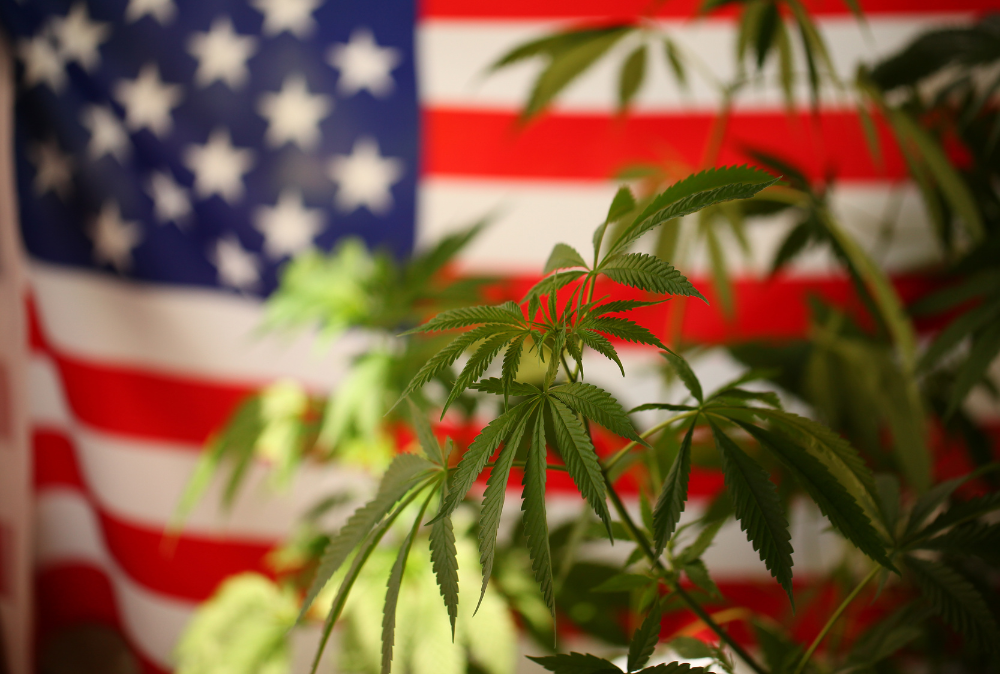
The debate over marijuana legalization in the United States has evolved significantly over the past few decades. As more states legalize cannabis for both medicinal and recreational use, the topic remains a key political issue. One prominent figure who has weighed in on this subject is President Donald Trump. His stance on marijuana legalization has been somewhat inconsistent, but it remains an important part of the ongoing national conversation as he prepares to be reinstated as president.
In this article, we’ll explore Donald Trump’s views on marijuana policy, how his administration previously approached cannabis legalization, and what his position might mean for the future of cannabis in America.
During his presidential campaign in 2016, Donald Trump initially suggested he was open to states deciding their own cannabis policies. This stance aligns with the principle of states’ rights — a central theme in his broader political platform. Trump famously stated in an interview with The Washington Post in 2015:
“I’m in favor of Medical Marijuana 100%. I’m in favor of it. I think it’s good. I think it helps people.”
At that time, his comments seemed to reflect a degree of flexibility on marijuana issues, acknowledging the potential benefits of cannabis for medical purposes. His position also indicated that he would not interfere with states that had already legalized recreational or Medical Marijuana.
However, in his first presidential term, Trump’s stance on marijuana legalization became more nuanced, especially as his administration grappled with how to handle marijuana policy at the federal level.
Once in office, Trump’s policy on marijuana legalization became more complex. While he reiterated his support for Medical Marijuana, his administration took some steps that raised concerns for cannabis advocates:
1. Attorney General Jeff Sessions and the War on Drugs
Trump’s Attorney General, Jeff Sessions, took a hardline stance on cannabis. Sessions, an outspoken critic of marijuana legalization, rescinded the Obama-era Cole Memo in January 2018. The Cole Memo had provided guidance for federal prosecutors, essentially instructing them not to target state-legal cannabis operations. By rolling back this policy, Sessions created uncertainty in the cannabis industry and caused anxiety among marijuana business owners in states where cannabis was legalized.
Despite Sessions’ actions, Trump himself was somewhat at odds with his Attorney General’s policy. In interviews, Trump suggested he was not overly concerned with state-level legalization, indicating he did not want to see the federal government impose its will on states that had chosen to legalize marijuana.
In 2018, Trump reportedly expressed support for a bill that would allow states to set their own marijuana laws, signaling his preference for state-by-state marijuana legalization.
2. Trump Signs the 2018 Farm Bill Legalizing Hemp
In December 2018, Trump signed the Agriculture Improvement Act of 2018, also known as the 2018 Farm Bill. The bill legalized hemp production and removed it from the Controlled Substances Act, paving the way for the growth of the hemp industry and the widespread availability of hemp-derived products like CBD. While the bill did not address marijuana in its entirety, it marked a significant step in the federal government’s acceptance of cannabis in some form.
3. Support for Medical Marijuana
Despite the mixed signals from his administration, Trump continues to express support for Medical Marijuana. Recently when discussing Florida’s upcoming legalization amendment, he emphasized the need for medical research into the benefits of cannabis and rescheduling to a schedule 3 drug. His support aligned with his general approach to cannabis policy, which seemed to favor a more hands-off, state-directed model for recreational marijuana, but with federal support for medical use.
One of the most consistent aspects of Trump’s stance on marijuana legalization has been his focus on states’ rights. Throughout his first presidency, he maintained that individual states should have the autonomy to decide whether to legalize marijuana for recreational or medical use.
For example, in 2018, Trump indicated he would support marijuana legalization in states where voters had approved it. His position on this issue was largely in line with that of many Republicans who advocate for a more limited role for the federal government in regulating states’ decisions.
While Trump’s first term as president did not result in significant changes to federal marijuana policy, his position has left a lasting impact on the debate over marijuana legalization in the United States.
Several factors may influence whether Trump’s stance will evolve further in coming years, including:
Though Trump’s position seems to err not as progressive as some in the cannabis community had hoped, his preference for allowing states to make their own decisions could still be seen as a step in the right direction. With future administrations and Congress likely to revisit marijuana legalization, Trump’s stance on this issue remains an important part of the broader political landscape.
Though Donald Trump’s initial time in office didn’t bring about significant changes to marijuana policy, his stance on marijuana legalization highlighted the ongoing struggle for federal cannabis reform. His administration’s approach focused on letting states decide while showing some support for Medical Marijuana and the hemp industry.
As we move forward into his second term, marijuana legalization will continue to be a key issue in American politics, particularly as more states legalize cannabis and public opinion shifts. Whether the U.S. will see full federal marijuana legalization under the upcoming Trump administration remains uncertain, but ongoing dialogue and state-level progress will likely continue to shape the future of cannabis policy in America.
In the meantime, UtahMarijuana.org and our affiliated clinic, KindlyMD, is here to help Utahns with qualifying medical conditions gain access to a Utah Medical Marijuana Card. Schedule today to see if Medical Cannabis is right for you.
For those seeking more information on cannabis and its legal status, stay tuned to our website for the latest updates, educational resources, and news on the marijuana legalization movement.
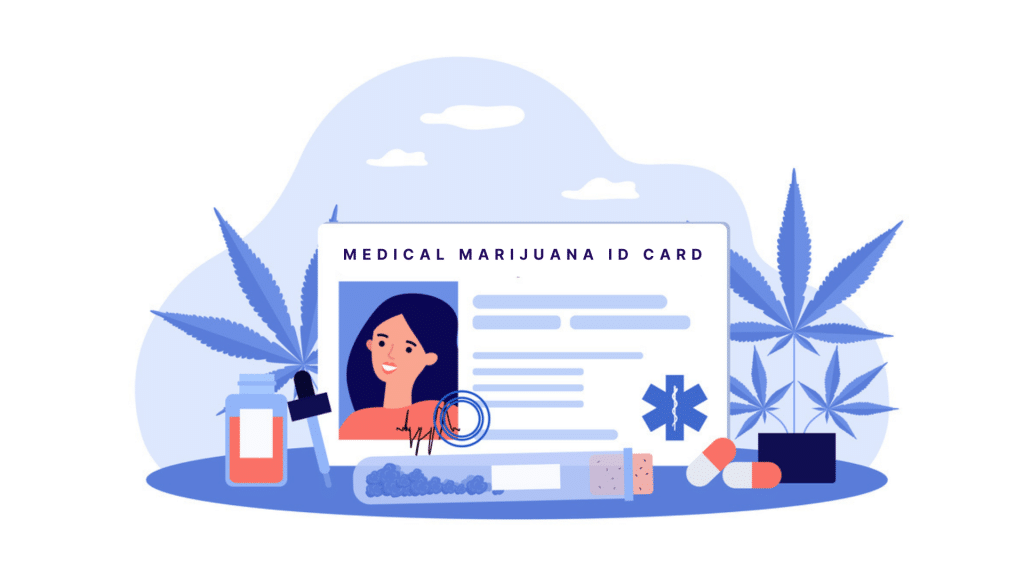
We have good news for anyone who has previously avoided attempting to obtain a Medical Cannabis Card based on age or the lack of a qualifying condition under state law. The state unveiled a new electronic verification system (EVS) last month. In so doing, they also made it easier to petition the Compassionate Use Board (CUB).
The CUB is tasked with reviewing all Medical Cannabis applications pertaining to underage patients and those without qualifying conditions. It is the board’s responsibility to approve or deny such applications on a case-by-case basis. Up until recently, however, petitioning the board has been cumbersome. That is no longer the case with the new EVS.
We recently published a post discussing the new EVS. If you read that post, you are aware of the fact that the state introduced the new system as a more streamlined experience. Multiple improvements were made in hopes of giving both medical providers and patients a better online experience when applying for new cards, renewing existing cards, and checking records.
How does the new EVS improve petitioning the CUB? By giving medical providers the ability to submit CUB petitions and documents directly from within the system. Prior to August 2024, petitions in documentation had to be submitted through a separate platform.
The new EVS makes it possible for a medical provider to initiate the petitioning process right from the start. But the system is also programmed to automatically invite medical providers to submit CUB petitions on behalf of patients who need them. In essence, the medical provider no longer needs to remember to do it. The system automatically invites them to do it.
Medical providers will see an automatic CUB petition that requests information the board needs to make its decision. Information covers a variety of issues, including:
On its website, the state points out that a patient’s medical team doesn’t have to support the decision to apply for a Medical Cannabis Card. But they do need to be made aware of the petition.
Doing everything online, through the new EVS, eliminates some of the burden previously borne by both Qualified Medical Providers (QMPs) and Limited Medical Providers (LMPs) alike. By eliminating the secondary step of having to submit petitions and documentation through a separate channel, medical providers are more likely to take care of everything on the spot, during a visit with the patient.
So, what does all this mean to you? Perhaps you have avoided trying to get a card because you don’t think you qualify. Or maybe you are the caregiver of a minor you believe could benefit from Medical Cannabis. With the new EVS in place, it is now easier for you and your medical provider to petition the CUB. Now might be the best time for you to apply.
Note that everything else about the process remains the same. After submitting the petition and documentation, you must wait for the CUB to take up your application at their next meeting. The board has the final word on whether you are approved.
If your application is approved, you will be issued a Medical Cannabis Card electronically. That card represents your legal right to visit any Medical Cannabis pharmacy in the state to purchase medicine.
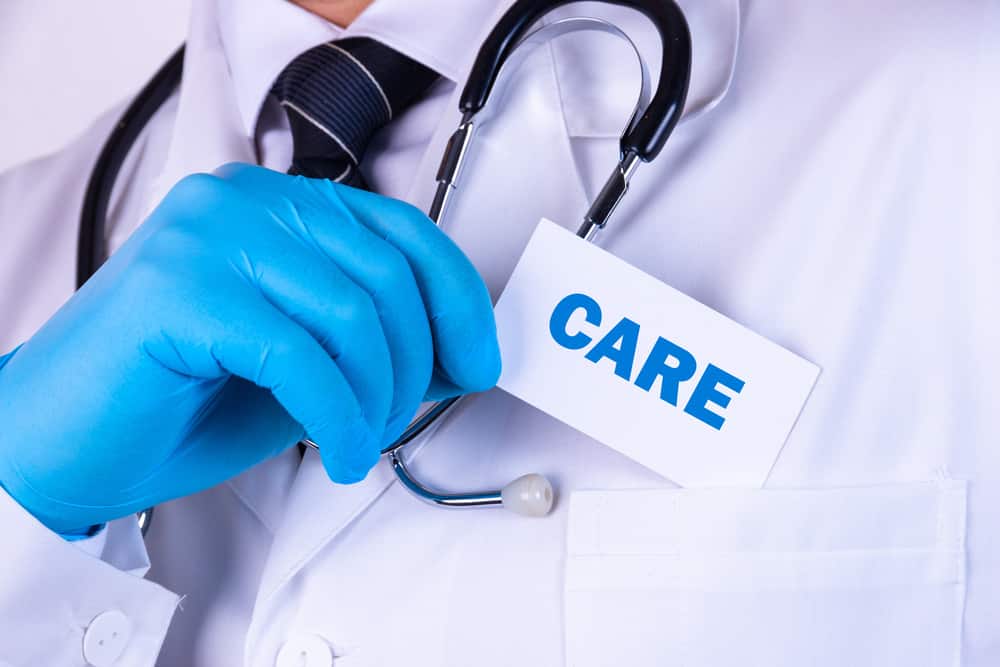
Utah’s Medical Cannabis program allows caregivers to purchase cannabis medicines on behalf of patients with the possession of a valid Caregiver Card. Have you heard of this card? If so, did you know that the state differentiates between primary and secondary patients for the purposes of obtaining and using a Caregiver Card?
There are several different Medical Cannabis Cards available in Utah. The standard Patient Card is the most commonly issued card. It is intended for adults who live in the state, are eligible to consume Medical Cannabis, and are able to obtain their medicines on their own.
The Minor/Guardian card is for adults with legal guardianship over minors who have been approved to use Medical Cannabis, while the Utah Non-Resident Card is for Medical Cannabis users visiting from out-of-state.
The purpose of the Caregiver Card is implied in the name itself. A caregiver is an adult who provides the majority of day-to-day care for a patient. In the case of someone eligible to use Medical Cannabis, one of the caregiver’s primary responsibilities might be running to the pharmacy to pick up the patient’s medicine. That is the purpose of the Caregiver Card.
With a valid card, a caregiver can purchase Medical Cannabis products on behalf of the patient. However, the patient must also have a valid Medical Cannabis Card. A patient must also designate a particular caregiver in the EVS before that caregiver can purchase Medical Cannabis on their behalf.
All of this brings us to the topic of primary and secondary patients. A distinction is made in the Utah regulations because the law allows caregivers to provide care for more than one patient. The first patient for whom a caregiver provides care is the primary patient. Subsequent patients added thereafter are considered secondary patients.
Note that fees differ based on patient status. For example, the initial fee for a Caregiver Card with a primary patient is $68.25. Caregivers pay $15 to add secondary patients. The first renewal for a Caregiver Card, regardless of the number of patients attached, is free. Subsequent renewals are $14.
The process for obtaining a Caregiver Card is pretty straightforward. The first step is for the patient to enter the caregiver’s information in their own EVS profile. In essence, the patient is designating that person to be their caregiver. After that, the rest is up to the caregiver.
The caregiver:
Applications are reviewed within 15 days of submission. Assuming everything is in order, the caregiver will receive a new card electronically. The card can be printed on paper or carried on an electronic device. One way or the other, the caregiver must present their card whenever visiting a Medical Cannabis pharmacy.
One more thing we feel you should know is that the Medical Cannabis obtained by way of a Caregiver Card is only intended for the patient being cared for. If the caregiver wishes to use Medical Cannabis as well, they must obtain a separate Patient Card.
Utah’s Caregiver Card affords caregivers the opportunity to purchase Medical Cannabis on behalf of those they care for. Understanding that caregivers may work with more than one patient, regulations allow for both primary and secondary patients. Now that you know the difference, perhaps you are interested in obtaining a Caregiver Card. Learn more with Utah Marijuana.

How well a drug or therapy works – what we in the healthcare field refer to as ‘efficacy’ – can be measured in different ways. Efficacy for a bone fracture treatment would be measured by how well the bone actually heals. Efficacy for cancer therapy might be measured by whether the therapy leads to remission. But what about Medical Cannabis? How is its efficacy measured?
The first thing to note is that Medical Cannabis doesn’t cure anything – at least as far as we know at the current time. When one of our medical providers recommends Medical Cannabis, the main goal is symptom relief. Whether or not it actually works determines its efficacy. And in some cases, the best measurement is quality of life.
It turns out that quality of life (QOL) is a standard measurement in medical science that can be applied in a variety of ways. For example, doctors may ask patients to complete a questionnaire designed to inquire about quality of life in relation to general health. The EQ-5D-5L questionnaire is a classic example.
The interesting thing about quality of life is that it is totally subjective. Patients can respond to a number of surveys in a variety of ways, leading researchers and medical providers to draw different conclusions about QOL.
Medically speaking, quality of life measurements are intended to account for:
There is no single way to measure quality of life among patients. Likewise, QOL measurements can indicate different things for different therapies. So what does all this mean to the Medical Cannabis patient?
It all points to the reality that patient experiences differ. Your experience with Medical Cannabis will not be identical to anyone else’s. You may share some similarities with other patients, but the details of your experience will be as unique as you are. No two Medical Cannabis patients are exactly alike.
Just know that your quality of life is important. You deserve the opportunity to live the kind of life you want to live, just like patients relying on any other treatments to feel better. Medical Cannabis has been recommended as a treatment because your healthcare provider believes it offers you the best chances of enjoying improved quality of life.
If your quality of life isn’t where you expected it to be when you first started using Medical Cannabis, don’t be afraid to get together with your medical provider to talk things over. It could be that you just haven’t been using Medical Cannabis long enough to notice a substantial improvement. But it could also be that you need to adjust the way you medicate.
We want to close this post by addressing patients who might be eligible for Medical Cannabis but haven’t yet applied for a card in Utah. If this group includes you, and you have been reluctant to apply because your only concern is symptom relief, we hope you’ll consider this one fact: symptom relief is sufficient motivation to utilize a medical therapy.
Prescription pain medications do not cure disease. Yet doctors prescribe them in hopes of providing symptom relief. Medical Cannabis is no different. No, Medical Cannabis doesn’t cure persistent pain or PTSD. But it can make symptoms more manageable. It can take the edge off.
There are several ways to measure Medical Cannabis efficacy. One of them is its ability to improve quality of life. Here’s hoping your quality of life has improved since you started your journey.

Have you heard about the new Electronic Verification System (EVS) for Medical Cannabis patients and providers in Utah? The Department of Health and Human Services (DHS) has been talking about it for several months now. The new EVS was officially launched on August 12, 2024.
If you are a current Medical Cannabis Card holder, don’t panic. You don’t need to do anything special to use the new EVS. You do not even need to find a new website address. You log on to the system via the same website you used before. You’ll find that your profile is still intact and that all your information is up to date.
From the state’s perspective, the new EVS makes for easier program administration. But the updated system also benefits providers and patients too. We encourage you to check out the new EVS as soon as you have some spare time.
Most of the changes made to the state’s Medical Cannabis program over the years have been intentionally designed to make the program better. The same reasoning has been applied to the new EVS. According to the DHS website, the new system offers six key improvements:
Bear in mind that every new online platform has its growing pains. The new EVS should be a substantial improvement over the system it replaces. But over the next several months, we should all expect some hiccups.
If you are new to Medical Cannabis in Utah, the whole EVS thing might seem foreign to you. The first thing you need to know is that the EVS is your gateway to all things Medical Cannabis in Utah. You will need an account on the system just to apply for a Medical Cannabis Card.
The EVS shares account information with the UtahID program. If you already have a UtahID, you will use the same credentials to create your EVS account. If you don’t have a UtahID account, you will have to create one before you can use the EVS.
The EVS is where you submit your Medical Cannabis Card application. It is where your medical provider enters information about your medical condition, current health, etc. Finally, the EVS is the platform through which you pay for your card and renew it the following year.
One last thing to note is that nothing changes for visitors hoping to gain access to Medical Cannabis while in Utah. The state still issues visitor cards through the EVS. Visitors need to establish EVS accounts and provide supporting documentation with their applications. It is not possible to obtain a visitor card without going through the EVS.
We commend the state for continually working to make Utah’s Medical Cannabis program better. An upgraded EVS is just the latest step taken by state regulators to streamline and improve access to Medical Cannabis. We are looking forward to positive reviews from both patients and providers alike. Hopefully, the newly launched EVS will exceed everyone’s expectations. If it doesn’t, it will be back to the proverbial drawing board for DHS.
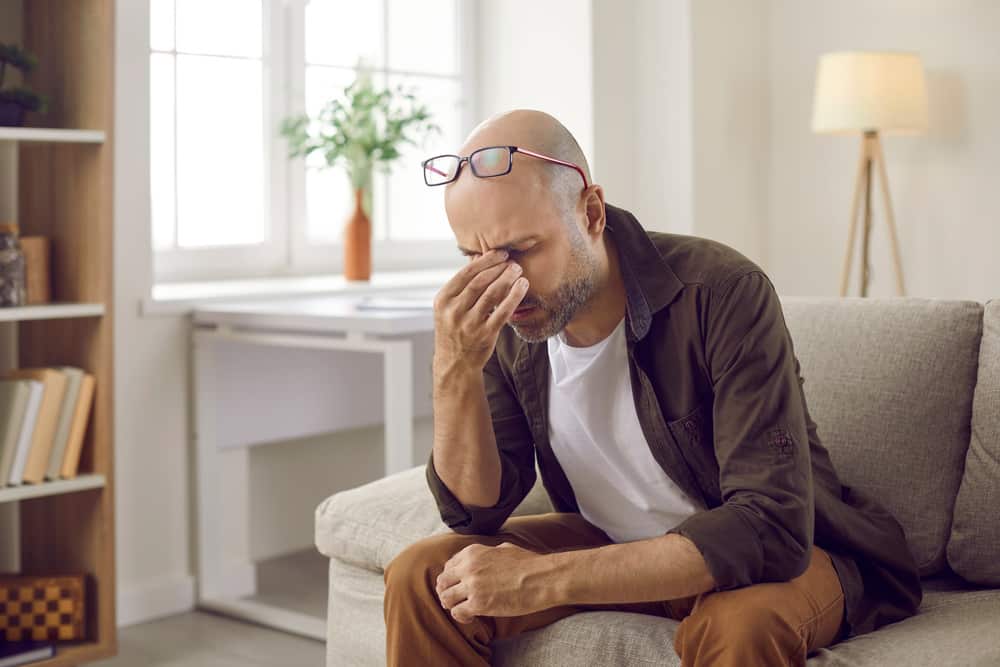
It is getting increasingly more difficult for those who oppose Medical Cannabis to claim that there isn’t enough scientific evidence in support of it. Clinical research continues to come in. The latest such research supports using Medical Cannabis to treat pain, anxiety, and depression.
Citing a lack of clinical evidence in support of Medical Cannabis has been a longstanding practice among cannabis opponents. We don’t fault them for that. Up until a few years ago, the point was valid. Thanks to so many years of federal prohibition, quality studies into Medical Cannabis and its efficacy were few and far between. But things have changed.
As Medical Cannabis has become more accepted around the country, the number of clinical studies being done at any given time has also increased. That is good. Studies produce helpful data. And the more data we have in support of Medical Cannabis, the more likely the chances of seeing it eventually being treated just like any other prescription medication.
The previously mentioned study was recently published in the Journal of Nurse Practitioners. It involved a group of patients purchasing Medical Cannabis products at a rural Virginia cannabis dispensary. All the patients who agreed to participate in the survey-based study were at least 18 years old.
In addition, researchers limited participation to patients using Medical Cannabis to treat chronic pain, anxiety, depression, or insomnia. Patient responses were scored based on six reference points:
The data showed positive results for patients across the entire spectrum. Approximately 28% reported experiencing better health while 57% said their quality of life had improved. Surprisingly, patients reporting anxiety and insomnia seemed to enjoy the most relief with Medical Cannabis.
In addition to Medical Cannabis efficacy, the research data also revealed a significant reduction in the use of prescription medications once patients began a Medical Cannabis regiment. Considering some of the prescription meds doctors normally turn to for chronic pain and insomnia, that’s good news.
Traditional pain and insomnia medicines come with side effects that can be quite unpleasant. For that reason, long term use is not advised for either prescription painkillers or sleeping pills. Medical science has been looking for alternatives for years. Perhaps we have finally found one in Medical Cannabis.
We are always open to new research data that helps us understand Medical Cannabis better. Every bit of data helps. In the case of this recent study out of Virginia, we need to keep in mind that we are talking about a small-scale study. How small? Just 31 participants were involved after removing candidates without the proper qualifications.
A study involving such a small number of patients doesn’t qualify as hard science all by itself. But combined with a growing body of evidence including dozens of other studies conducted around the world, it adds yet more evidence in support of Medical Cannabis.
Here in Utah, persistent pain is the most common condition cited by Medical Cannabis Card applicants. The second most cited condition is PTSD. But who knows? Depending on what future research shows, insomnia, anxiety, and depression may account for larger numbers of Medical Cannabis patients.
In the meantime, don’t be afraid to reach out to a medical provider if you believe your medical condition qualifies you for a Medical Cannabis Card. You can visit any one of our clinics throughout Utah to consult with a Qualified Medical Provider (QMP).

One of the funny things about the practice of medicine is that no treatment or therapy enjoys a 100% success rate. Not even Medical Cannabis. We do our best to educate patients who come to us for help with obtaining a new card and managing their medications. We would hate for anyone to assume that getting a Medical Cannabis Card equals a guarantee that their problems will be solved.
There is little doubt that Medical Cannabis is an effective treatment for a variety of conditions. Persistent pain is at the top of the list. But there are no guarantees that consuming Medical Cannabis will ensure a pain-free life. It is also unlikely that a medical provider will recommend cannabis exclusively. In so many cases, obtaining a Medical Cannabis Card is just one part of a broader treatment strategy.
Medical providers frequently encourage patients to combine Medical Cannabis treatments with other strategies. The goal is never to just get a patient onto a particular medication and nothing more. At least it shouldn’t be. There is so much more to feeling better than taking medications of any type.
One of the first things any medical provider should point out to patients is that obtaining a Medical Cannabis card does not preclude all other medications. More than one patient has benefited from combining Medical Cannabis with other prescriptions previously recommended. A patient should never just assume that Medical Cannabis will be the only medication they ever need.
By the way, this illustrates why medication management is such an invaluable service to patients. Patients taking multiple medications do not always have the knowledge or skill to manage them effectively. A medical provider willing to help can go a long way toward maintaining patient safety and maximizing symptom relief.
Aside from other medications, medical providers are likely to consider other treatments in addition to Medical Cannabis. For instance, a patient experiencing persistent pain might be encouraged to undergo physical therapy. Another patient might be encouraged to try occupational therapy as a way of returning to what would be considered ‘normal’ life.
Something else to consider are lifestyle changes. Medical providers go down that road because they know how lifestyle choices can impact health and wellbeing. A classic example is recommending that an arthritis patient works on losing excess weight.
Extra weight just puts more stress on already painful joints. Lose some of that weight and you reduce the stress. In turn, this should lead to at least some measure of pain relief.
That same arthritis patient would probably benefit from regular exercise as well. Exercise can strengthen muscles, ligaments, and tendons. Increased strength provides more support for the joints. That leads to additional pain relief.
Weight loss and exercise will probably not eliminate the patient’s pain entirely. This is especially true if the patient is dealing with osteoarthritis. But losing weight and exercising can enhance the benefits of using Medical Cannabis to manage persistent arthritis pain.
What we are trying to express here is that patients should maintain an open mind. An open mind has led us to discover just how beneficial Medical Cannabis can be to treating conditions like persistent pain. But that same open mind dictates looking at other possibilities.
If you have a Medical Cannabis Card, has your medical provider recommended other strategies as well? Sometimes that is how it goes. Sometimes, the Medical Cannabis Card is just one part of a much broader strategy for improving patient wellness.